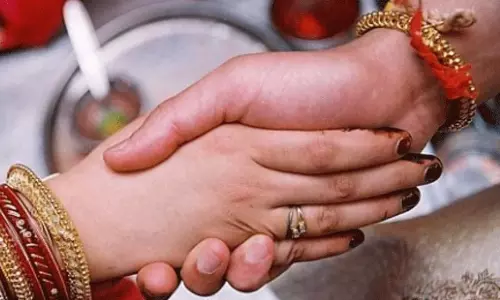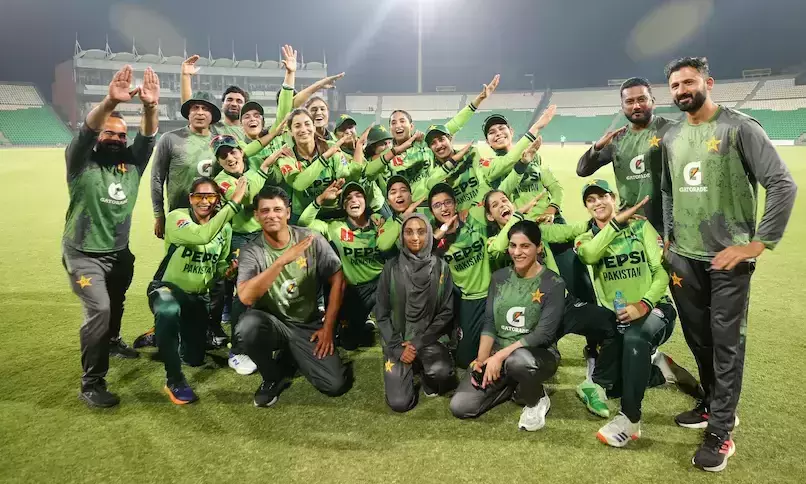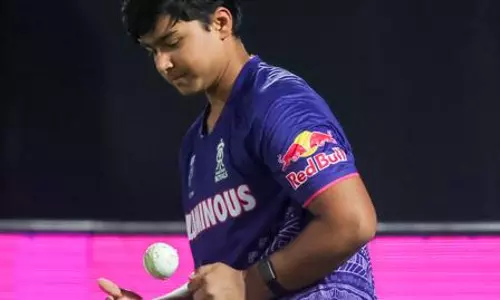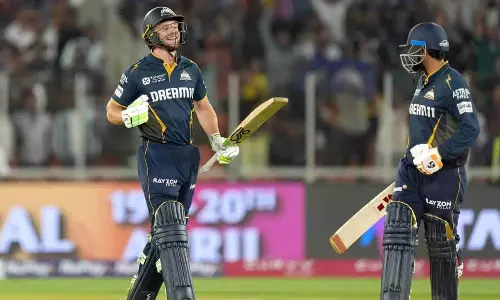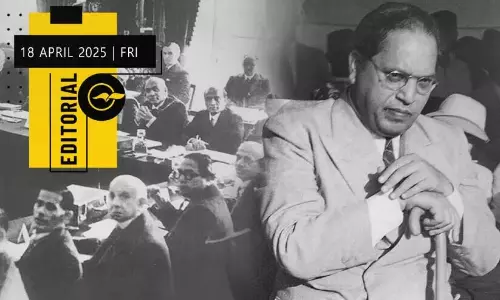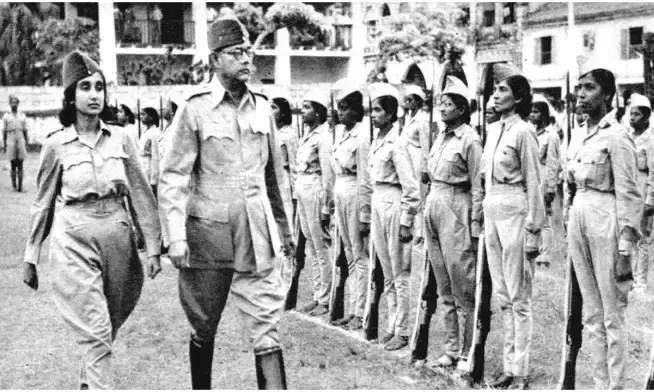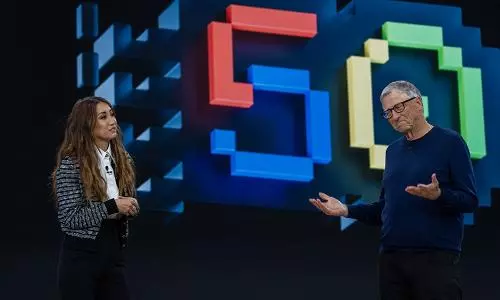
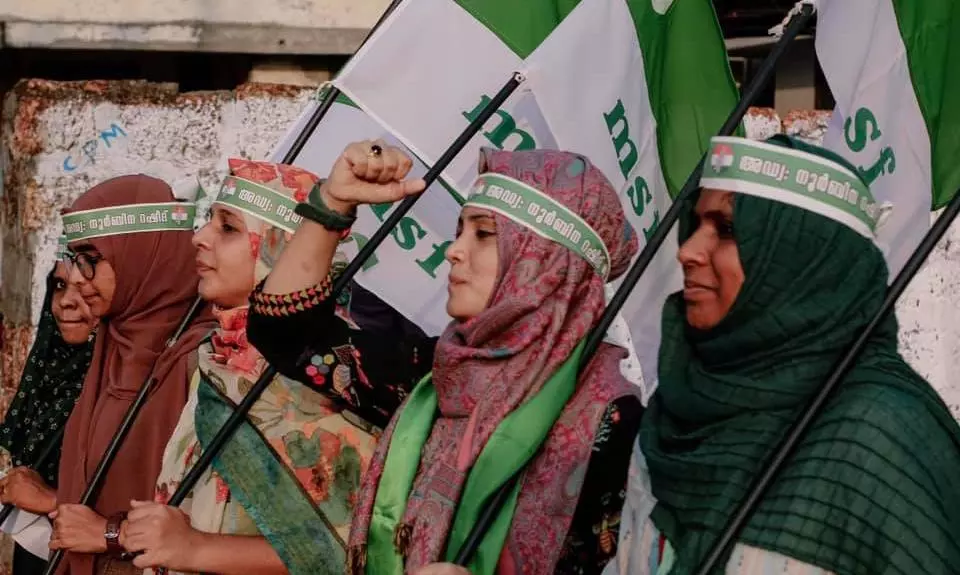
Argumentative Indian Muslim Women
text_fieldsIs there really an appropriate time to broach certain uncomfortable conversations within a community?
The issue of entrenched misogyny and sexism within the Indian Union Muslim League was raised by the 10 girls of Haritha, the women student's wing of the party, and the registration of a sexual harassment case against two Muslim Student's Federation (MSF) leaders with the Kerala State Women's Commission has come up at a time when the whole nation is ruing the hollowing out of democracy in the country by the Modi government, of which the minority community, Muslims, are the primary victims. The issue at hand - of suspending the state committee of Haritha for refusing to withdraw its complaints against the MSF leaders - reeks of the lack of inner-party democracy within the IUML itself.
Such a women's rebellion as the one marked by Haritha is unprecedented in IUML's 70-year history. Certain unwritten gags guard over patriarchal entitlements in conservative societies; these are often sanctioned by religion, and thus the double-secured gags pass down generations. Attempts at questioning the dogmas by affected parties are dubbed as near-blasphemy; an inbuilt community mechanism operates on these to guarantee that the clock is always set back to where it all began.
The Indian Union Muslim League doubtless played a great role in developing the Muslim community in Kerala to bring Kerala Muslims to the mainstream of all socio-political discourses happening in the state. But Muslims here mean just the men among the believers. Due to the importance given to education in Kerala, the Muslim girls have made vast strides in education down the years; they now ace in all areas of academic excellence. However, is there any scope for Muslim women who are interested in a political career? Don't Muslim women need a role in participatory democracy?
Kerala's story of interaction with the Muslim community historically happened at another level. Muslim communalism is largely a non-issue in Kerala, where a cosmopolitan ethos exists to a large extent. The BJP blatantly spreads the threat perception propaganda of growing Muslim fundamentalism in Kerala to malign the stubbornly secular state. When Amit Shah dubs Malappuram, the Muslim majority district of Kerala, as "mini-Pakistan" to push the narrative that this district and the rest of Kerala houses quite several Islamic terrorists/fundamentalists and extremists, what can we say to this anti-Muslim propaganda except to sympathise with his second-hand experience with Partition Horror stories? But should we wait for an ideal time for all the external conditions to returning to normalcy before talking about the drawbacks of the principal Muslim party in Kerala?
Haritha's revolt has proved that gender justice and equitable sharing of political responsibilities with the female gender within the Muslim community cannot be deferred any longer. We are way past 1986 when the Muslim community as a whole upheld their patriarchal interpretation of the Shariat law and failed the hapless widow Shah Bano.
A system that refuses to change with the times will have to reckon with a steady outflow from the party of the new generation's brave, educated, intelligent and articulate women if their legitimate issues are not heeded. In TV studios debating the Haritha issue, we saw a clash of worldviews belonging to two different centuries. The misogynistic worldview that infantilises and sexualizes women in the public domain crept up even into the linguistic phrases that the older men used to counter the new breed of confident, ballistic young women such as Jazla Madasseri, who have walked out of the religion.
The tone of Fathima Thahliya, the National Vice President of the Muslim Students Federation, who has thrown her weight behind the cause of Haritha, was composed, and her articulation impressive at the press conference when she appealed to the spirit of unity and accommodation within IUML itself. Fathima expressed her strong sense of belonging to the party while appealing for a dignified existence with the freedom to exercise her agency. The older generation's socio-political and religious moderation is the only option forward as the young women have a mind of their own.
In the freezing of Haritha, the top leadership seems to be missing the wide range of feminist assertions and articulations made by a wide range of Muslim women, some believers and some others non-believers.
The tokenism in fielding Noorbina Rasheed as the League's first woman candidate after 25 long years in this year's Kerala Assembly polls seat was in plain sight. She obviously didn't make it to the legislature. Just as throughout India, there has been a sharp decline in parties fielding Muslim candidates for fear of losing Hindu majoritarian votes, that male majoritarian mindset and politics are cancelling the spirit of democracy within the IUML.
Age-old gender divisions in the Muslim community need to be addressed forthwith and without delay, as this is what offers ample chance for the Bharatiya Janata Party to pass such double-edged laws as The Muslim Women (Protection of Rights of Marriage) Act 2019. The task of 'saving' Muslim women cannot be left in the hands of the Bharatiya Janata Party and its affiliates, who were caught on camera shouting violent anti-Muslim slogans yet again at the national capital just a fortnight ago. The IUML should take the Haritha rebels back into its fold and enact true female political empowerment within the party before the BJP steps in to take advantage of the dissatisfactions of the second sex. The literal interpretation of the Quran, Hadiths, and the Sharia law out of context in this day and age certainly does a great disservice to the women within the Muslim community and the larger community as a whole.
(Leena Mariam Koshy is an independent writer based in Kozhikode, Kerala)




